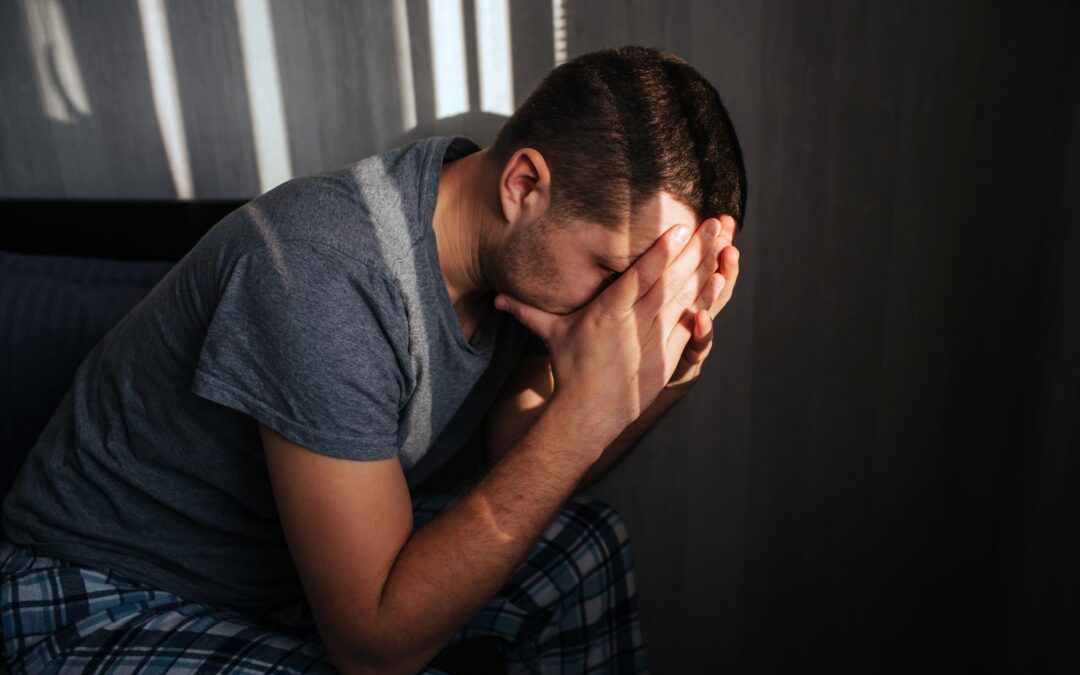Understanding Opioid Use Disorder and Its Long-Term Effects
Opioid Use Disorder (OUD) is one of America’s most pressing public health challenges, affecting millions of lives across the nation. This chronic medical condition is characterized by a pattern of opioid use that leads to significant impairment and distress.
How Opioid Use Disorder Develops
The path to OUD often begins with prescription painkillers – medications initially prescribed for legitimate pain management. Common prescription opioids include:
- Oxycodone
- Hydrocodone
- Codeine
- Morphine
When access to prescription medications becomes limited, many individuals turn to illicit alternatives like heroin. The rise of synthetic opioids, particularly fentanyl, has dramatically increased the risks associated with OUD. Fentanyl’s potency – up to 50 times stronger than heroin – has contributed to a surge in overdose deaths.
The Far-Reaching Impact of Opioid Use Disorder
The impact of OUD extends far beyond immediate health concerns:
- Physical dependence and tolerance
- Disrupted brain chemistry
- Compromised immune system
- Deteriorating mental health
- Strained relationships and social isolation
Understanding these long-term effects is essential for developing effective treatment strategies. At Advanced Addiction Center, we recognize that successful recovery requires addressing both the immediate symptoms and the lasting impact of opioid use. Our comprehensive treatment approach considers the complex nature of OUD and its far-reaching effects on individuals’ lives.
1. Physical Health Consequences of Long-Term Opioid Use
Long-term opioid use creates significant physical health challenges that affect multiple body systems. These effects can persist long after initial use and require specialized medical attention.
Gastrointestinal Impact
- Chronic constipation affects up to 90% of individuals using opioids long-term
- Opioids slow down digestive muscle contractions, leading to:
- Reduced bowel movements
- Hard, dry stools
- Severe abdominal pain
- Untreated constipation can progress to bowel obstruction, requiring emergency medical intervention
- Moreover, chronic constipation has been linked with cognitive decline, adding another layer of concern for long-term users.
Respiratory System Changes
- Opioids directly affect the brain’s respiratory control center
- Users experience:
- Decreased breathing rate
- Shallow breathing patterns
- Reduced oxygen levels in blood
- Sleep apnea risk increases significantly
- Respiratory depression can become life-threatening
Cardiovascular Complications
- Heart rhythm abnormalities become more common
- Blood pressure fluctuations occur regularly
- Risk factors increase for:
- Heart attacks
- Irregular heartbeat
- Bacterial heart infections
Reproductive and Endocrine System Effects
- Hormonal imbalances affect both men and women
- Common issues include:
- Reduced testosterone levels
- Irregular menstrual cycles
- Decreased sex drive
- Fertility problems develop in both genders
- Pregnancy complications increase significantly
- Bone density often decreases due to hormonal changes
These physical health consequences can develop gradually and may not be immediately apparent to users. Regular medical monitoring becomes essential for individuals with long-term opioid use to detect and address these complications early.
2. Neurological and Mental Health Effects of Long-Term Opioid Use Disorder
Long-term opioid use creates significant changes in brain chemistry, leading to complex neurological and mental health challenges. A particularly concerning effect is Opioid-Induced Hyperalgesia (OIH), a condition where patients experience increased sensitivity to pain despite using pain-relieving opioids.
Understanding Opioid-Induced Hyperalgesia (OIH)
During OIH, your nervous system becomes hypersensitive, causing:
- Heightened pain responses to mild stimuli
- Pain spreading beyond the original injury site
- Reduced effectiveness of opioid medications
- Intensified discomfort during physical activities
Mental Health Consequences of Chronic Opioid Use
The psychological impact of chronic opioid use manifests through various mental health conditions. Research shows a direct correlation between extended opioid use and the development of:
- Anxiety Disorders: Panic attacks, social anxiety, generalized anxiety disorder
- Depression: Persistent low mood, loss of interest in activities, changes in sleep patterns, difficulty concentrating
These mental health challenges create a complex cycle – psychological distress can intensify pain perception, leading to increased opioid use, which then exacerbates mental health symptoms. Brain imaging studies reveal altered neural pathways in long-term opioid users, affecting regions responsible for emotion regulation, decision-making, and stress response.
The Role of Different Opioids
Interestingly, the type of opioid used can also influence these effects. For instance, medications like hydrocodone and tramadol have different impacts on the body and mind, further complicating the landscape of opioid addiction and its consequences.
3. Social Impacts and Additional Risks Related to Long-Term Opioid Use Disorder
The social effects of Opioid Use Disorder go beyond just physical and mental health problems. People who are dealing with OUD often face major disruptions in their everyday lives and relationships.
Key Social Impacts:
1. Professional Life Deterioration
- Decreased work performance
- Frequent absences
- Job loss
- Career instability
2. Family Relationship Strain
- Trust breakdown with loved ones
- Neglect of parental responsibilities
- Financial stress on household
- Communication breakdown
3. Social Isolation
- Withdrawal from social activities
- Loss of non-using friends
- Reduced participation in community events
- Abandonment of hobbies and interests
The consequences of OUD can create a cycle of isolation. As relationships worsen, individuals may turn to substance use for comfort, leading to further withdrawal from society. This pattern can result in:
- Lost educational opportunities
- Legal complications
- Housing instability
- Financial hardship
The impact on children of parents with OUD is particularly concerning. These children face increased risks of:
- Emotional trauma
- Developmental challenges
- Academic difficulties
- Higher likelihood of developing substance use issues
4. Comprehensive Treatment Approaches at Advanced Addiction Center
At the Advanced Addiction Center in Medford, Massachusetts, we provide evidence-based treatment approaches designed to address the complex nature of opioid use disorder. Our comprehensive treatment programs focus on both the physical and psychological aspects of addiction recovery.
Medically Supervised Detoxification
During the crucial withdrawal phase, our medical team will closely monitor your condition around the clock. We understand that withdrawal symptoms can be uncomfortable and challenging, which is why we have customized medication protocols in place to manage these symptoms effectively.
Here are some key features of our medically supervised detoxification program:
- 24/7 medical monitoring during the critical withdrawal phase
- Customized medication protocols to manage withdrawal symptoms
- Vital signs monitoring and immediate medical intervention when needed
- Professional support to minimize discomfort and prevent complications
- Safe environment to begin the recovery journey
The detoxification process typically lasts 5-7 days, during which our medical team will carefully manage symptoms such as muscle aches, nausea, sleep disturbances, anxiety, and restlessness.
Outpatient and Intensive Outpatient Programs (IOP)
We offer flexible treatment options that allow you to maintain your daily responsibilities while still receiving essential care. Our outpatient program includes individual therapy sessions tailored to your needs, group therapy for peer support and shared experiences, flexible scheduling options, regular progress assessments, and family therapy integration.
For those who require a more intensive level of care, our IOP provides 9-12 hours of structured therapy each week. This includes dual diagnosis treatment for co-occurring mental health conditions, Cognitive Behavioral Therapy (CBT) sessions, relapse prevention education, life skills development workshops, and drug screening measures.
Client-Centered Approach
At Advanced Addiction Center, we believe in a client-centered approach to treatment. This means that we will adjust the intensity of your treatment based on your progress and individual needs. Our programs incorporate evidence-based practices that have been proven effective in treating opioid use disorder.
Some of these practices include medication-assisted treatment when appropriate, trauma-informed care, behavioral modification techniques, stress management strategies, and coping skills development.
Each treatment plan is customized to address your specific challenges and recovery goals. We understand that everyone’s journey to recovery is unique, which is why we provide the structure and support necessary for lasting healing.
Holistic Therapy Options for Opioid Use Disorder Treatment
At Advanced Addiction Center, we understand that recovering from opioid use disorder requires a comprehensive approach that addresses both the body and mind. Our holistic treatment methods work in conjunction with traditional medical interventions, creating a well-rounded recovery experience.
Key Holistic Therapies in Our Program:
1. Meditation and Mindfulness
- Reduces stress and anxiety
- Improves emotional regulation
- Strengthens relapse prevention skills
2. Yoga Practice
- Restores physical wellness
- Enhances mind-body connection
- Builds sustainable coping mechanisms
3. Art Therapy Sessions
- Provides non-verbal expression outlet
- Processes trauma through creativity
- Develops healthy self-discovery
These evidence-based holistic approaches work alongside our medical treatments to support your recovery journey. You’ll learn practical tools to manage stress, regulate emotions, and build resilience – essential skills for maintaining long-term sobriety.
Our trained therapists guide you through each practice, ensuring you receive maximum benefit from these healing modalities. The combination of traditional treatment methods with holistic therapies creates a powerful foundation for sustained recovery and improved quality of life.
Ready to explore holistic treatment options? Call us at (781) 560-6067 to learn how our integrated approach can support your healing journey.








